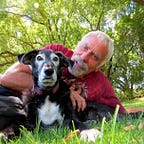BOJANGLES
BOJANGLES
My first real attention to cannabis came in 1970, through my involvement in a gift shop called The Bojangles Shop. Friends of my sister Sandy asked if I would be interested in being a partner in a gift shop they envisioned. My husband Larry and I were already involved in collecting and selling antiques. We were acquainted with my partner Diane’s mother through the antique circuit, so we each provided items for the antique room in a shop we opened on North Gilbert Street in Danville, Illinois, beside a steak house. The front room was filled with the kind of tchotchkes you might find in an import store. We sold incense, posters, playing cards, smoking pipes and rolling papers. Of course I knew what the pipes and rolling papers were being used for. Even though I had never tried cannabis, I knew it was not the bad thing it was made out to be. I hadn’t tried it because I would never dream of sucking smoke into my lungs.
After the first month the shop became very popular. We took out radio ads to expand our customer base even more. Then strange things began to happen. A young high school girl came to the shop one night, deciding to confide in me. She told of being addicted to drugs that were making her hallucinate. Concerned about her well being, I contacted my friend Woody Lee, a high school teacher, to see if he could find help for her. Then a pair of sociologists came to interview me about the girl. Then someone else from a government agency came for more interviews. I became suspicious when their questions strayed more and more away from the girl and more and more about my views about drugs. Hey, I was honest. I told them what I told everybody. I didn’t use them, but I had no judgement towards anyone who did.
One day, 10 minutes after I left the shop it was raided by the Danville, Illinois police department. My partners were arrested for selling cannabis. The girl, the sociologists and the government workers had all been undercover investigators. We later learned that our phone had been tapped during the investigation. I was never involved in the trial or called for any reason. I hadn’t known my partners were selling pot. So I’m guessing the authorities also knew I didn’t know. Diane and Larry had their lives destroyed for selling something that one could grow in their own backyard. At that time I decided that the most serious side effect of using cannabis was the unfair classification by the government. I had yet to see the kind of negative consequences one suffered from tobacco or alcohol.
I was so distraught over the arrest of Diane and Larry, I packed a bag, then walked to the entrance to the interstate to hitchhike to my sister Pat’s in Fort Worth Texas. I was so naive about hitchhiking, I carried a Samsonite hard sided luggage instead of a backpack. The only benefit was that I had something to sit on when I became tired from carrying the darn thing.
Several times I was let out onto the highway, where I placed myself in a spot where traffic would not be impeded when someone stopped to pick me up. South of Saint Louis, it began to rain, so I crawled up on the concrete under an overpass where I felt protected. The storm became more and more aggressive, then a couple of cars pulled under the overpass and parked. Someone rolled down a window to tell me there was a tornado. After the wind died down they went on their way, without offering me a ride. At dawn, a thunderstorm arrived as a last hurrah, lightning struck a transformer next to the gas station on the other side of the road. The trauma of the prospect of a trial of my business partners had catapulted me into a world I had never imagined for myself. I was surprised at the courage I displayed. That afternoon I was picked up by a Dutch man in a Volkswagen Bug, headed to Texas. He delivered me to Downtown Fort Worth the next morning. I caught a bus to my sister’s house, ringing her doorbell completely unannounced. In those few days I had broken down barriers I did not understand at the time. With my own hand I had expanded my world with a new found courage to travel.
In 1982/83, while serving as primary caregiver for a bone cancer patient, I was introduced to the concept of medical cannabis. In a study by a university, Jiggs had been given government grown cannabis to treat the pain related to her bone cancer as well as to stimulate her appetite. Throughout the following decade I saw cannabis used to treat many of the symptoms related to AIDS drugs. When I read an article about a Danville High School classmate who had been arrested on cannabis related charges, I wrote a long letter to my hometown newspaper explaining my perspective from the epicenter of an epidemic, while they still seemed to believe the 1936 propaganda film, “Reefer Madness!”
I have baked pot brownies for cancer patients more times than I could count over the past few decades. As I look at the Bojangles photo from my perspective here in 2022, I want to go back and tell my younger self how proud I am of him for being smart and not being judgmental.
